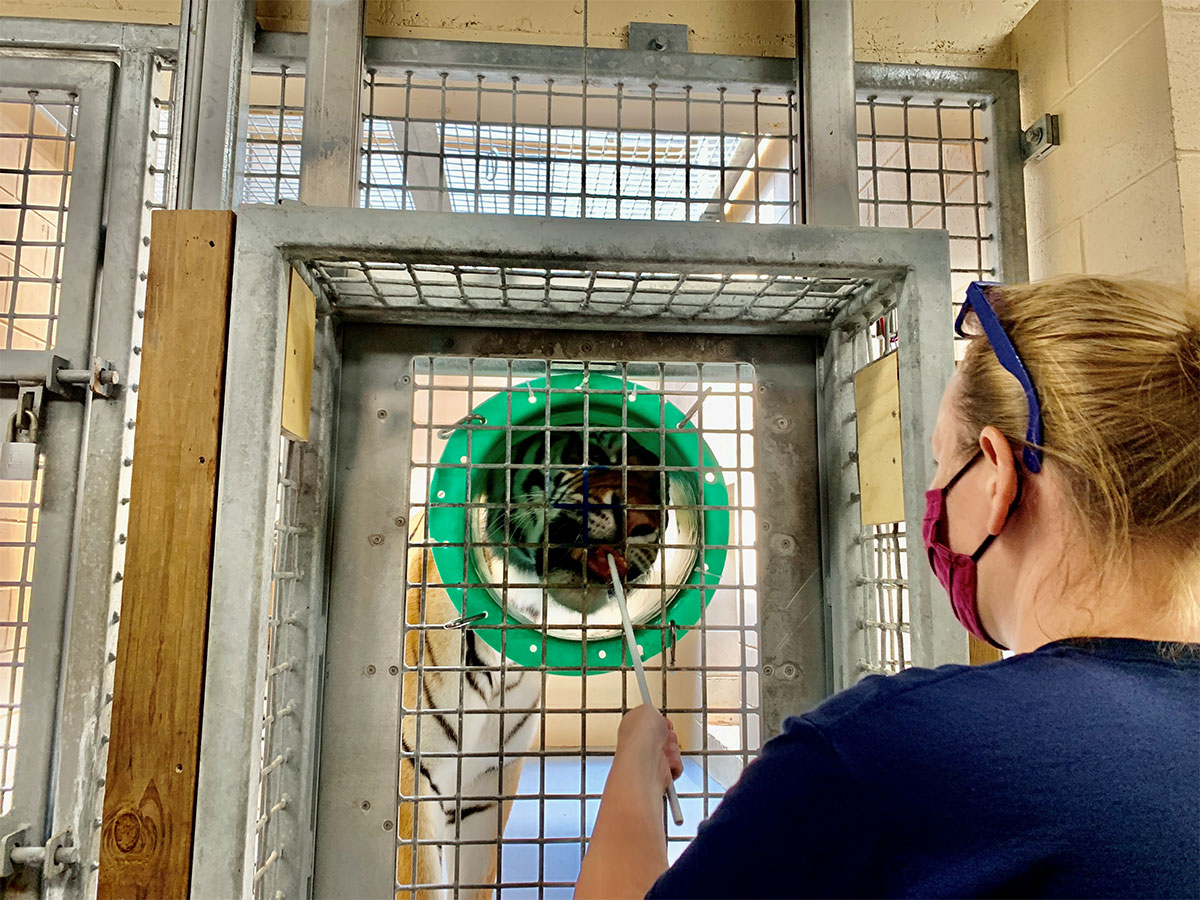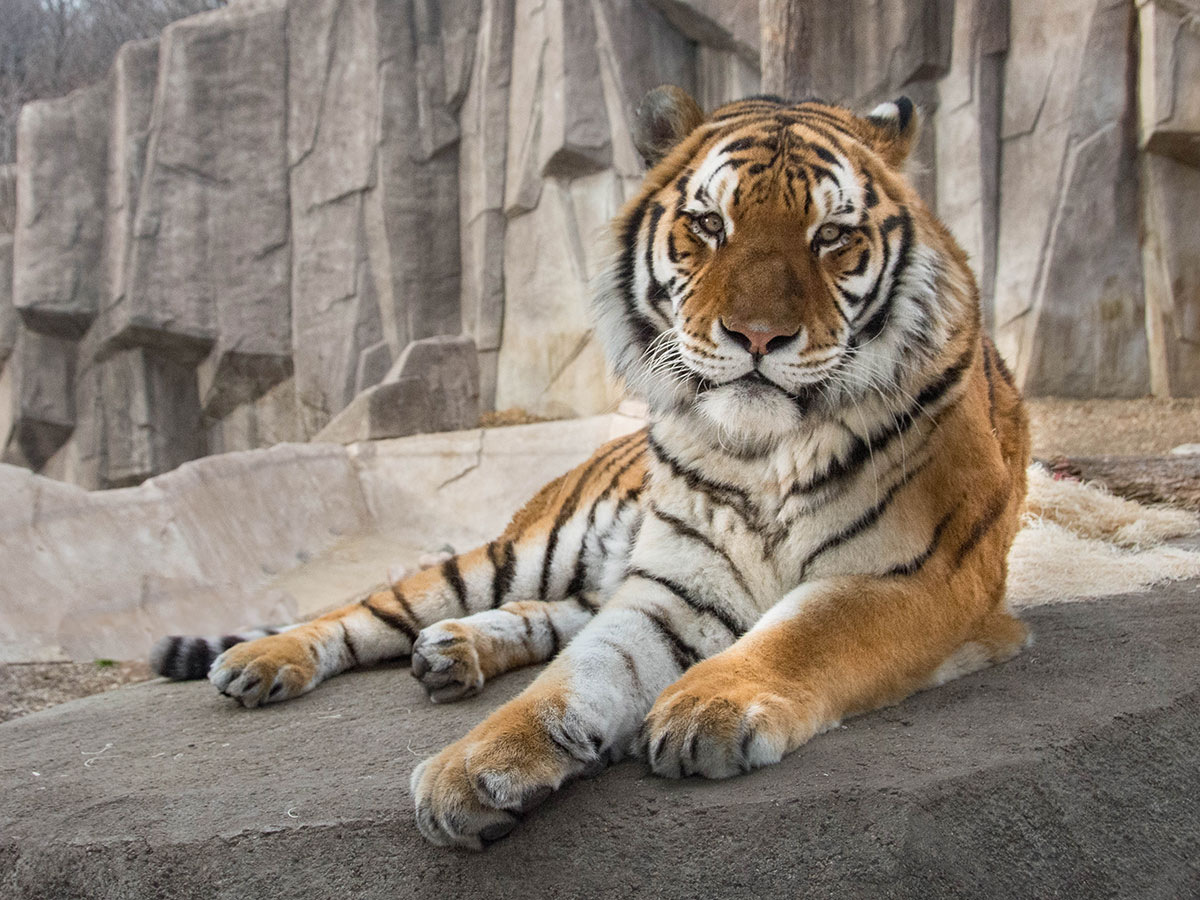COVID-19 not only changed the lives of humans; it also impacted the animals at the Zoo. Very quickly, animal experts around the globe discovered big cats like tigers, jaguars and lions are able to contract the virus. That’s why zookeepers at the Milwaukee County Zoo took extra precautions around the animals and started training some of them to take a nose swab test. Big Cats area supervisor Katie Kuhn has been working with tigers Kash and Tula in addition to cheetah Imara. “We started with the cats that we thought would catch on quickly, so we could fine-tune our training process,” says Kuhn.
The test process is similar to the one for humans – a swab goes into the nostrils. Thanks to the trust between the keepers and animals, and the fact the animals are very food-motivated, the tigers and cheetah are ready to go. Here’s how it works. A chute specifically made to fit the cat’s head hangs on the mesh inside their den. The keepers give the command “head,” and the cat puts its head into the chute with its nose up against the mesh. It gets rewarded with its favorite food – usually meat for the tigers. Then, the keepers will say the word “swab,” and the vet tech makes the swab. The cat gets rewarded again with its favorite snacks. According to Kuhn, the cat may sneeze after the swab or give the keeper a glare. “For the most part, they take it well and come right back for more snacks. It’s not so uncomfortable that they won’t do it for some treats.”
Zookeepers and veterinarians do regular health checks on the animals, and it’s more beneficial for the animal to do it while awake – anesthesia can be stressful on an animal. “It seems like COVID will be around for a while, and we want to ensure their health just like we do with everything else such as blood draws, yearly vaccinations and weigh-ins,” says Kuhn. “This is just one more way we can monitor and protect them.”


